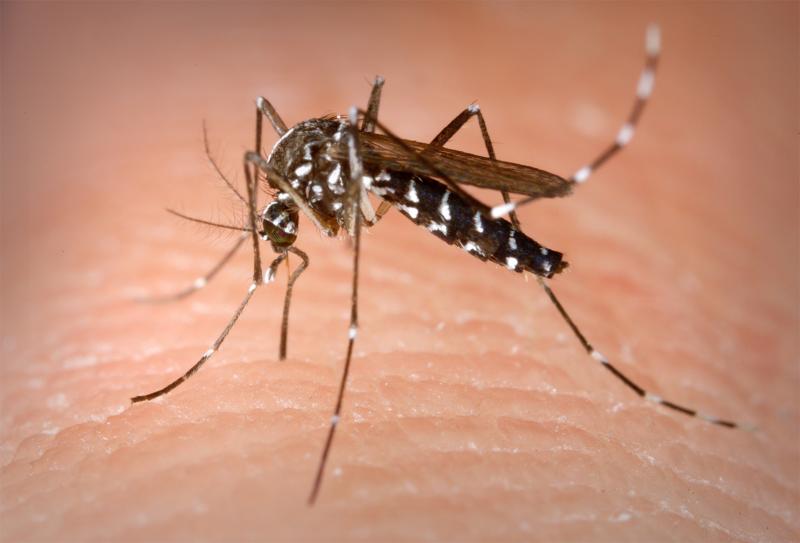Last week storms - This week mosquito buzz

Last week it was storms. We’re entering the peak season for hurricanes. This week it’s mosquitoes, and you guessed it, this is also peak season for those biting bloodsuckers.
Turns out, like everything else, there are connections. With the heavy rains that often come with hurricanes also come outbreaks of mosquitoes. According to Dr. Bill Meredith, who heads up Delaware’s $2 million annual assault on mosquitoes, rains associated with Hurricane Irene in 2011 caused lots of trouble. “We went way into the hole that year,” said Meredith. “Lots of extra spraying. But the state always comes through when necessary. They allow the best professional judgment to prevail.”
You can hardly mention mosquitoes these days without Zika virus being part of the conversation. Meredith said 2016 has been a normal year for mosquito production in wet woodlands and salt marshes. “We’ve done a fair amount of treatment - aerial spraying and ground fogging where necessary - but nothing atypical. The only exception for this year is Zika. We don’t expect it to be a problem here, but we’re hoping for the best and preparing for the worst.”
Meredith said when his division is informed by the state’s health department that someone in Delaware has been identified with the virus - typically acquired from travels elsewhere - concern rises about that person being bitten by a mosquito and transmitting the virus to others. “We’ve had no reports whatsoever of local transmission of Zika through the Asian Tiger Mosquitos which are our biggest concern. Asian Tiger Mosquitos - an invasive species here since the 1980s - can transmit Zika from mammal to mammal. It’s documented in Africa and Mexico. All the pieces are there for transmission as far north as Delaware. So far there are no transmission cases here, and there will be a big sigh of relief if it isn’t going to happen here,” said Meredith.
There have been 11 reported Zika cases in Delaware this year. “Within seven to 10 days of the symptoms being seen, the virus could be picked up by a mosquito and transmitted to others,” said Meredith. “We did field work in five cases and decided to do local ground fogging in three cases. One case was in Sussex. It’s very surgical treatment because Asian Tiger Mosquitoes only fly in a radius of 150 yards from where they hatch. So far so good.” Mosquitoes have long been a scourge along the coast.
“We had Third World mosquito production conditions prior to 1950, but no longer,” said Meredith. “We aerial spray marshes for saltwater mosquitoes, wet woodlands for Asian Tiger Mosquitoes and we do ground spraying as necessary. Much of the time people don’t notice what we’re doing. It’s funny. Sometimes visitors will see us spraying. They will say: ‘What are you spraying for? There isn’t a mosquito problem here.’ And that’s just the point. We’re doing our job and keeping the problem down.” Mrs. Henry B. Thompson of Wilmington and Rehoboth Beach is credited with spearheading Delaware’s mosquito control program in the 1920s. “She said she was tired of having to wrap the calves of her legs with newspaper when she was gardening. She was the straw that stirred the drink,” said Meredith. “The Civilian Conservation Corps started digging marsh drainage ditches, contractors sprayed DDT to kill mosquito larvae and we’ve progressed ever since to using mosquito-eating fish in our marshes and much greener insecticides. All around the Inland Bays was ideal production area for saltwater mosquitoes which can transmit deadly Eastern Equine Encephalitis. For coastal communities that’s our biggest concern. They come in waves, especially when heavy rains follow dry spells.”
Meredith, who did his master’s and doctorate work at the University of Delaware’s College of Marine Studies in Lewes, said his operation, in the Division of Fish and Wildlife, is very green in mosquito control. “We’re very attuned to not doing things wrong. We’re biologists first, bug killers second. But we have to control mosquitos. That’s our job.”
















































